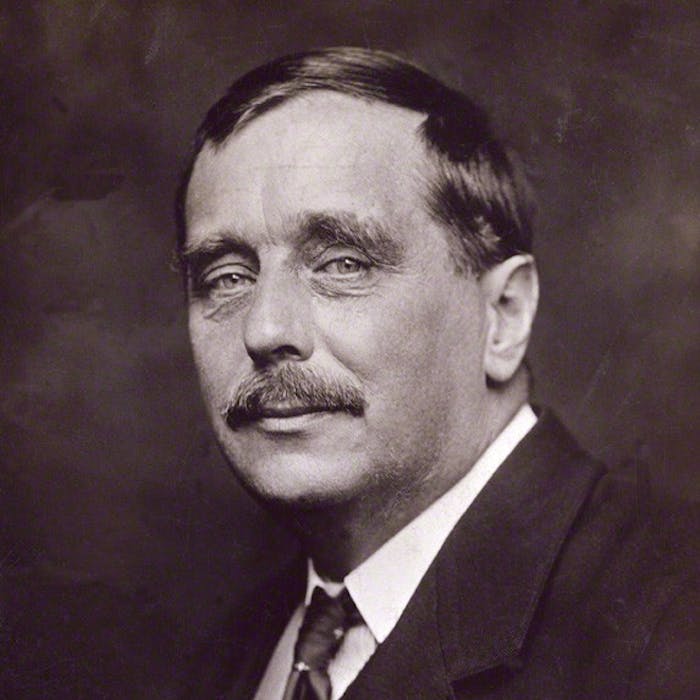
The early days of writer H G Wells
By the early 1900s, writer H. G. Wells was leading an enviably bohemian life of critical and public literary success, wealth, fame, and adoring women - but his mother had originally lined up a career for him as a draper's assistant, which she considered a good, respectable career.
Though he wrote a wide range of novels and essays, H. G. Wells is perhaps best known today for his science-fiction novels. He was one of the first writers to popularise such science-fiction themes as time travel, space exploration, alien invasion, invisibility, and the artificial transfer of characteristics between species.
However, Wells was from a modest background and was destined originally for a life behind a shop counter.
Herbert George Wells was born in 1866, the fourth child of his parents, who had met when his mother was a lady's maid and his father a gardener at a large country house. By the time of Herbert's birth they were running an unsuccessful shop in the high street of Bromley, Kent. Joseph Wells was also a professional county cricketer, and his earnings from this source supplemented the meagre family income.
When Joseph suffered an injury that ended his cricketing career, his wife Sarah returned to working as a housekeeper at Uppark House in West Sussex.
Though husbands were not permitted, she was able to have her youngest son Herbert living with her. This experience gave the young boy access to a decent library, an awareness of the arbitrary nature of the class system, and a taste of the finer things in life which gave him aspirations 'above his station'.
Sarah Wells naturally expected that her boys should knuckle down as soon as possible and start earning their keep. They were apprenticed as drapers' assistants at 14. Herbert was dismissed from his first apprenticeship. His mother remained determined to set him on the right path and got him a place to assist a chemist, and then to another drapers in Portsmouth.
His mother, Wells recollected, thought 'that to wear a black coat and tie behind a counter was the best of all possible lots attainable by man—at any rate by man at our social level'
Young Wells endured the drudgery of life as a draper's assistant for two years. He hated it and later wrote 'I recall those two years of my incarceration as the most unhappy hopeless period of my life.'
To the distress of his mother, Wells quit his job and started on the path that was to take him to worldwide fame as a novelist, short story writer, and sociologist.
He became a lowly paid teacher, supplementing his earnings with writing, ultimately becoming the 'father of science fiction' with his popular novels including The Time Machine published in 1895, The Island of Doctor Moreau in 1896, The Invisible Man in 1897, and The War of the Worlds in 1898.
But despite his many later triumphs, Wells never forgot or forgave his superiors in the drapery shop.
Twenty-four years later, in 1905, he published his renowned novel, Kipps, the Story of a Simple Soul. In the book Wells appears lightly disguised as Art Kipps, a humble draper’s apprentice.
Wells was a prolific writer, and also known for his socialist views and interest in the future development of human society. He married twice and had many mistresses. He died in 1946.
Further reading
Links to external websites are not maintained by Bite Sized Britain. They are provided to give users access to additional information. Bite Sized Britain is not responsible for the content of these external websites.
